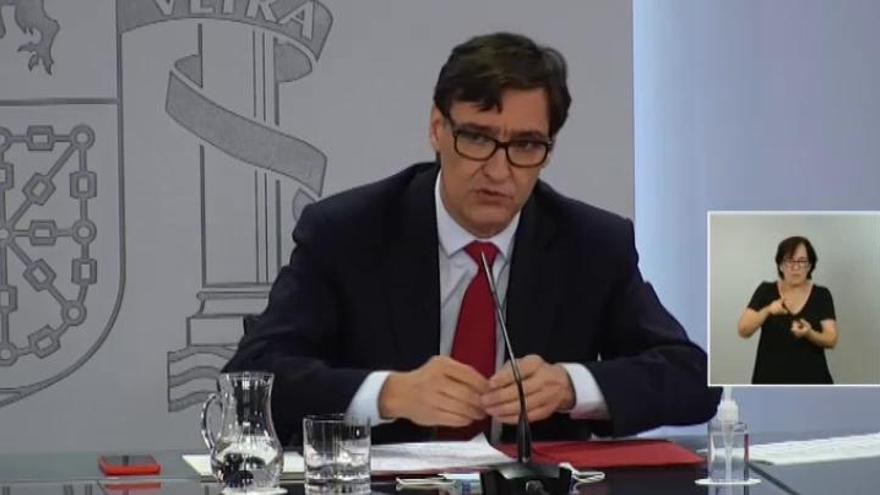The deficit of 500 billion crowns is approved for this year, and even though in the end it will probably be several tens of billions lower, it will still clearly be a record in government debt. For next year, deficit estimates start at 200 billion crowns.
Uncertainty associated with the epidemic coronavirus can significantly reduce revenue state budget. In addition, the government is working on that – perhaps already abolished the acquisition tax, which is minus 13 billion crowns a year, and the plan is significant reduction in employee income taxes, which will deprive the state treasury of at least 70 billion crowns a year.
At the same time, Prime Minister Andrej Babiš says that the Czechia can afford further indebtedness, because it is one of the least indebted countries in the EU. He emphasized this, for example, in his defense special pension allowance.
But will it remain so even after 2020 and 2021? And can it be expected that in the years to come, the government – whatever it may be – will step on the brakes and try to run again without huge deficits? Will it be possible at all, when pensions have been growing at a record rate in recent years and salaries in the public sphere have been growing rapidly? And is it necessary to step on the brake at all? Isn’t state debt management a new norm?
Alena Schillerová
Minister of Finance
I feel as if one important function of public finances has been forgotten. This is the stabilization of the economy. And during such a sharp decline, also the redistribution function, which takes into account not only the economic but also the social aspect. Unfortunately, in the Czech Republic, the primary, if not the sole, holder of both functions is the state budget. And a number of political decisions have offset other components of public budgets that otherwise have significant reserves. Some even create surpluses this year. That is why the state budget is in a deep deficit this year and we cannot be expected to get it into the black tomorrow.
But I don’t regret it. We took advantage of structural surpluses from previous years and relatively low levels of indebtedness. We had a unique starting position for fiscal stimulus. We entered this year as the fourth least indebted EU country with a debt of around 30% of GDP. In addition, we have surplus health and social insurance, as well as the management of regions, cities and municipalities. We have a healthy banking sector, low unemployment and a slightly current account surplus.
Result? Our starting position, together with a number of fiscal and other stimuli, ensured that the downturn in the Czech economy in the first half of the year was far more modest than everyone had estimated. I’m very happy about that. We must not now consolidate ourselves into the second wave of the recession. But I say plainly that the permitted sluices from 2020 will not be repeated.
Eva Zamrazilová
economist, chairwoman of the National Budget Council
 —
—
Although the Czechia is one of the least indebted countries in Europe, it is necessary to realize that, unlike many other countries, we do not have a completed key infrastructure. Not only in the often mentioned area of transport, such as the motorway network and railway corridors, not to mention high-speed lines, but also in the area of state administration. This can now be seen, for example, in the state of sanitation stations and their outdated and insufficient technical equipment, or in the lagging digitization of offices and their agendas.
In addition, however, the Czechia will face the costs associated with a significant aging of the population – it is not only about pension reform, but also about future demands for health care or social services. If, instead of fiscal prudence, the trend of increasing mandatory spending at the expense of investment and reckless over-indebtedness, which we are now witnessing with reference to Covid-19, continues, one day the situation will force a sharp step on the public finance brake anyway. It is not a question of whether this will happen, but when it will be and to what extent.
Michal Skořepa
analyst of Česká spořitelna
 —
—
For many previous years, the Czech governments’ finances could be described as relatively reasonable, at least in an international comparison: if there were obviously unforced proposals to increase spending or reduce revenues by the economic situation, they were mostly relatively small amounts. Recent weeks have brought change. In particular, the proposal to change the basis for calculating the payroll tax, leading to a reduction in the collection of this tax by almost one hundred billion crowns, clearly deviates from this reasonable tradition. This measure will not help the economy: it will be late and will not change the fact that Czech households are not spending due to official bans and hygiene barriers rather than due to insufficient income.
In purely numerical terms, the impact of the planned reduction in income taxation on the Czech state’s debt ratio will be erased by economic growth of around four percent. This measure will therefore take us perhaps up to two years from the time we still have to deal with the current unsustainable setting of Czech public finances.
In addition, the question is whether, in the light of these uneconomical steps, we will maintain the current confidence of investors. The average holder of government bonds is not so much interested in the absolute amount of debt as in the behavior of the debtor: whether he shows a willingness and ability to repay the debt, or whether, on the contrary, he comes up with steps that rather undermine his ability to repay in the future.
If we start to lose investor confidence, the government’s debt service would become more expensive, and perhaps this could be reflected in slower economic growth. A possible departure of foreign investors would most likely lead to a weakening of the koruna, stronger inflationary pressures and a tighter monetary policy.
Helena Horská
Chief Economist of Raiffeisenbank and member of KoroNERV-20
 —
—
What will be the deficit? state budget The Czech Republic next year? Who knows? The finance minister proposed minus 116 billion and added with one breath that this number is unrealistic. What to add… We should consider it a challenge to the competition “Who hits the state budget deficit?”. And will the winner be able to buy Czech government bonds on favorable terms? Stupid joke.
Now seriously: The planned deficit cannot be read from the macro forecast of the Ministry of Finance. Even sadder is the forecast of tax revenues. It does not take into account economic and political risks, let alone the planned shortfalls in budget revenues in the tens of billions of crowns. It “looks” as if there is no discussion about the final form of the proposal to abolish the super-gross wage and the associated 70- to 90 billion revenue shortfall. That is why, as a member of the Committee on Budgetary Forecasts at 21 September 2020, I declined to comment on the revenue forecast. My assessment of the numbers presented did not fit into any of the legal boxes: optimistic, real or conservative. It is simply out of reality, ie unrealistic, irrelevant to the situation and pointless.
What do I expect the state budget deficit to be this year and next? This is how to predict from coffee grounds. This year, the government will try to exhaust everything that the half-trillion ceiling allows, to the last crown, even if revenues are to develop more favorably. So I’m betting on a deficit of over 380 billion crowns, although it could be significantly lower even after taking into account the effects of covid-19. We know that the government is not going to save. It plans to increase expenditures by 2.9% in 2021 after this year’s 3.8%.
Let’s forget about savings. On the contrary, the state is planning further expenditure orgies, because in absolute terms, even a lower year-on-year increase is a larger increase in government expenditures in billions. The government does not plan any stabilization of public budgets. He resigns to the consolidation of public budgets. By the end of 2022, public debt will begin to rise again. And it is not at all clear how the economy will fare next year. How the state treasury will be filled with taxes that the government plans to cut. Moreover, it is uncertain how crisis-related spending will develop when the government spews one proposal after another.
I estimate the deficit of the state coffers next year, with the economy recovering around four percent, in the range of 250 to 400 billion crowns.
Pavel Sobisek
Chief Economist of UniCredit Bank
 —
—
This year’s state budget deficit will end well below the legally sanctified limit of 500 billion. Most subsidy and social programs adopted in response to the coronavirus pandemic will cost taxpayers slightly less than pessimistic estimates. Also, some taxes are better collected. That is undoubtedly good news. However, the relief from it should not obscure the question of why the government actually had the deficit approved so high. It would not approach this limit even in more unfavorable circumstances.
Estimating the level of next year’s deficit is more difficult than ever. What are the biggest unknowns? Macroeconomic developments other than forecast may add to or remove tens of billions from it, yet it is not a major uncertainty. Amendments to laws that are at various stages of parliamentary discussion may have a similar effect on cumulation. Where are the times when the draft state budget provided only for finished changes in legislation!
However, the biggest gaps in the state budget can be made by political ideas, which have not yet taken the form of an amendment to the law, yet they are potentially planned. The dominant, though not the only, such idea is the abolition of the super-gross wage. This could be quite a non-controversial step in another parameterization. However, with the expected shortfall of tax revenues by 80 to 90 billion crowns (for central and local budgets), it seems more like a gamble, which without spreading over several years can not only significantly deepen the imbalance of public finances, but also fluctuate demand in the Czech economy.
Without taking into account the changes in the super-gross wage, we see the loss budget deficit for 2021 probably in the range between 240 and 300 billion.
Petr Barton
chief economist Natland
 —
—
The Czechia is not responsible for the budget. We also had deficits in the economy. In addition, the government increased hidden debt by increasing mandatory expenditures, which were not reflected in the boom and have so far remained hidden. The German government has announced a deficit of 96 billion euros next year. This is 2.8% of GDP last year. According to that, ours next year would have to be CZK 158 billion. After taking into account the lower income tax, we are already at 200 billion and the reality will be even worse.
That rising pensions has no effect on the ability of the future return to at least small deficits, if not to balanced budgets. This is because the pension system is in such trouble that the current increase is really just the icing on the cake.
Salaries in the public sphere will also not be the biggest problem of return. And saving in the public sphere is not as difficult as saving on pensions. Pensioners cannot be canceled, officials can be canceled. Paradoxically, the more we increase their salaries, the more we save for each person canceled. Only someone has to come up with a way to get future governments to cut off these officials from the public sector, not just social workers.
The main obstacle to a future return to pre-Eid public finances will be the “new norm” that the state of Covid is now creating. Under the motto “We are building the resilience of the system, we are strengthening peace”, not only new officials, new controllers and regulators will be justified, but also the state building of extra capacity in everything, not only in healthcare. And everything will happen to try to sell in marketing, claiming that we are investing out of the crisis. It was just a shock from the crisis that Covid did not cause; from the crisis caused by the state’s draconian restrictions on economic life.
And we definitely have to step on the brakes. The road to hell is paved with good intentions of state investment. Ultimately, the state does not have a separate source of money. He seeks debt money in the same financial market as private investors, retirement homes, and ultimately romantic poets. That’s a great comparator. And so the government will feel the transience of feldkurat Katz’s conviction “it suits us when people lend to us.” The interest rate on debt will rise. Unfortunately, not just for governments.

 –
–

